Gianluigi Liva
Fully Asynchronous Unsourced Random Access over Fading Channels
Dec 22, 2025Abstract:We examine unsourced random access in a fully asynchronous setup, where active users transmit their data without restriction on the start time over a fading channel. In the proposed scheme, the transmitted signal consists of a pilot sequence and a polar codeword, with the polar codeword distributed across the data part of the packet in an on-off pattern. The receiver uses a double sliding-window decoder, where the inner window employs iterative decoding with joint timing and pilot detection, channel estimation, single-user decoding, and successive interference cancellation to recover the message bits, while the outer window enhances interference cancellation. The numerical results indicate that the proposed scheme exhibits only a slight performance loss compared to the synchronous benchmark while being more applicable in practice.
A Fully Asynchronous Unsourced Random Access Scheme
Apr 15, 2025Abstract:We investigate fully asynchronous unsourced random access (URA), and propose a high-performing scheme that employs on-off division multiple access (ODMA). In this scheme, active users distribute their data over the transmit block based on a sparse transmission pattern without any limitations on the starting time. At the receiver side, we adopt a double sliding-window decoding approach, utilizing a smaller inner decoding window of two block lengths within a larger outer window to enhance the interference cancellation process. Within the inner window, the receiver iteratively applies preamble-free joint starting time and pattern detection, single-user decoding, and successive interference cancellation operations. A notable feature of the proposed scheme is its elimination of the need for a preamble for starting time detection; this is achieved using ODMA transmission patterns. Numerical results demonstrate that the proposed asynchronous URA scheme outperforms existing alternatives.
Learning-Based Rich Feedback HARQ for Energy-Efficient Short Packet Transmission
Jun 05, 2023



Abstract:The trade-off between reliability, latency, and energy-efficiency is a central problem in communication systems. Advanced hybrid automated repeat request (HARQ) techniques can reduce the number of retransmissions required for reliable communication, but they have a significant computational cost. On the other hand, strict energy constraints apply mainly to devices, while the access point receiving their packets is usually connected to the electrical grid. Therefore, moving the computational complexity required for HARQ schemes from the transmitter to the receiver may provide a way to overcome this trade-off. To achieve this, we propose the Reinforcement-based Adaptive Feedback (RAF) scheme, in which the receiver adaptively learns how much additional redundancy it requires to decode a packet and sends rich feedback (i.e., more than a single bit), requesting the coded retransmission of specific symbols. Simulation results show that the RAF scheme achieves a better trade-off between energy-efficiency, reliability, and latency, compared to existing HARQ solutions and a fixed threshold-based policy. Our RAF scheme can easily adapt to different modulation schemes, and since it relies on the posterior probabilities of the codeword symbols at the decoder, it can generalize to different channel statistics.
Semantic Communications in Networked Systems
Mar 09, 2021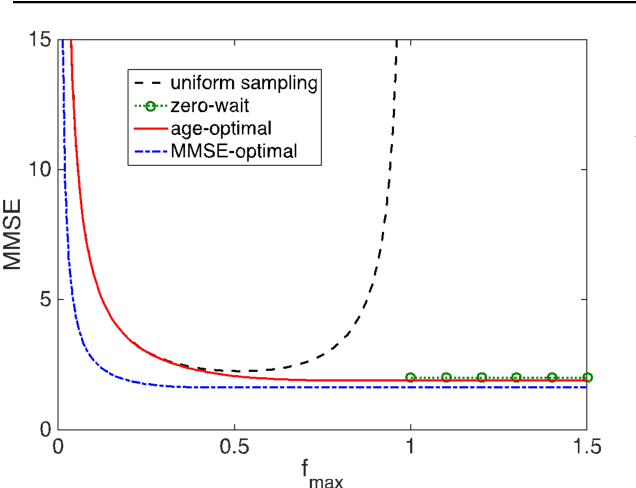
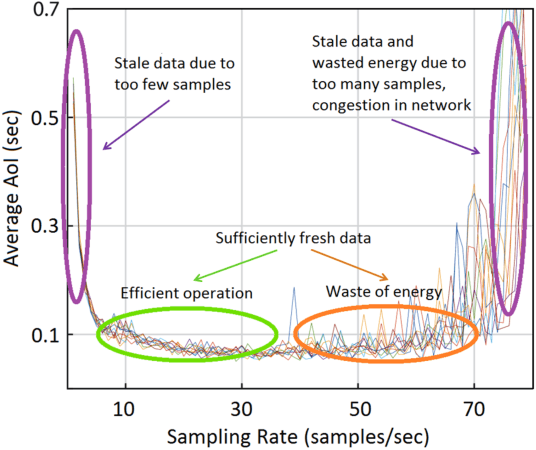

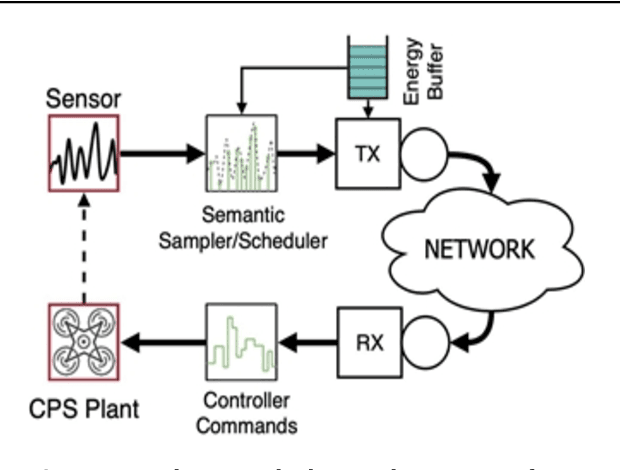
Abstract:We present our vision for a departure from the established way of architecting and assessing communication networks, by incorporating the semantics of information for communications and control in networked systems. We define semantics of information, not as the meaning of the messages, but as their significance, possibly within a real time constraint, relative to the purpose of the data exchange. We argue that research efforts must focus on laying the theoretical foundations of a redesign of the entire process of information generation, transmission and usage in unison by developing: advanced semantic metrics for communications and control systems; an optimal sampling theory combining signal sparsity and semantics, for real-time prediction, reconstruction and control under communication constraints and delays; semantic compressed sensing techniques for decision making and inference directly in the compressed domain; semantic-aware data generation, channel coding, feedback, multiple and random access schemes that reduce the volume of data and the energy consumption, increasing the number of supportable devices.
A Droplet Approach Based on Raptor Codes for Distributed Computing With Straggling Servers
Oct 08, 2018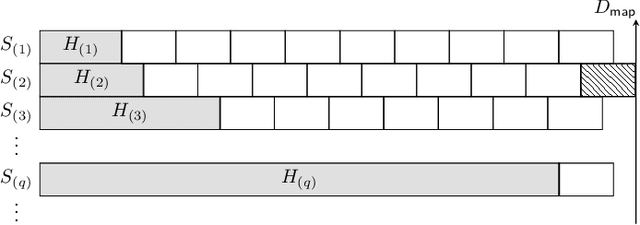
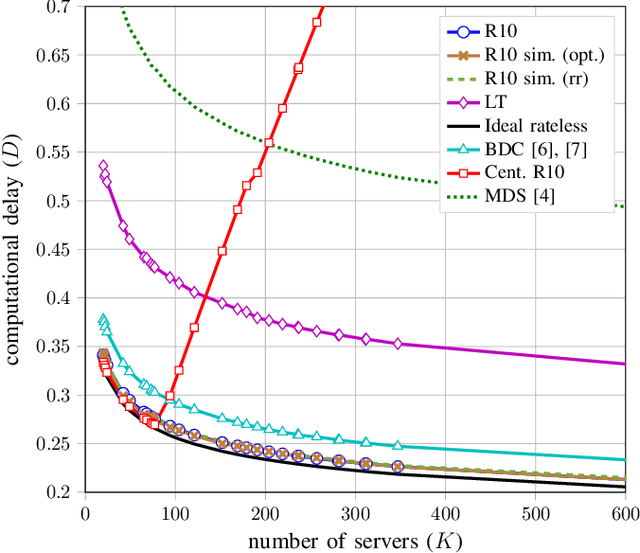
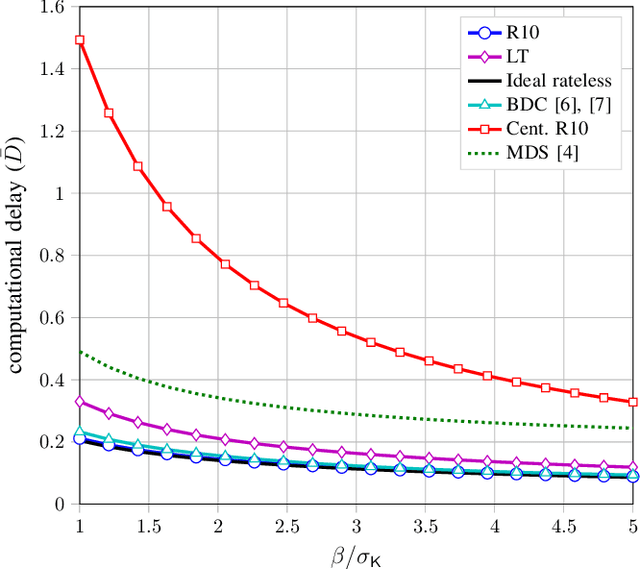
Abstract:We propose a coded distributed computing scheme based on Raptor codes to address the straggler problem. In particular, we consider a scheme where each server computes intermediate values, referred to as droplets, that are either stored locally or sent over the network. Once enough droplets are collected, the computation can be completed. Compared to previous schemes in the literature, our proposed scheme achieves lower computational delay when the decoding time is taken into account.
 Add to Chrome
Add to Chrome Add to Firefox
Add to Firefox Add to Edge
Add to Edge